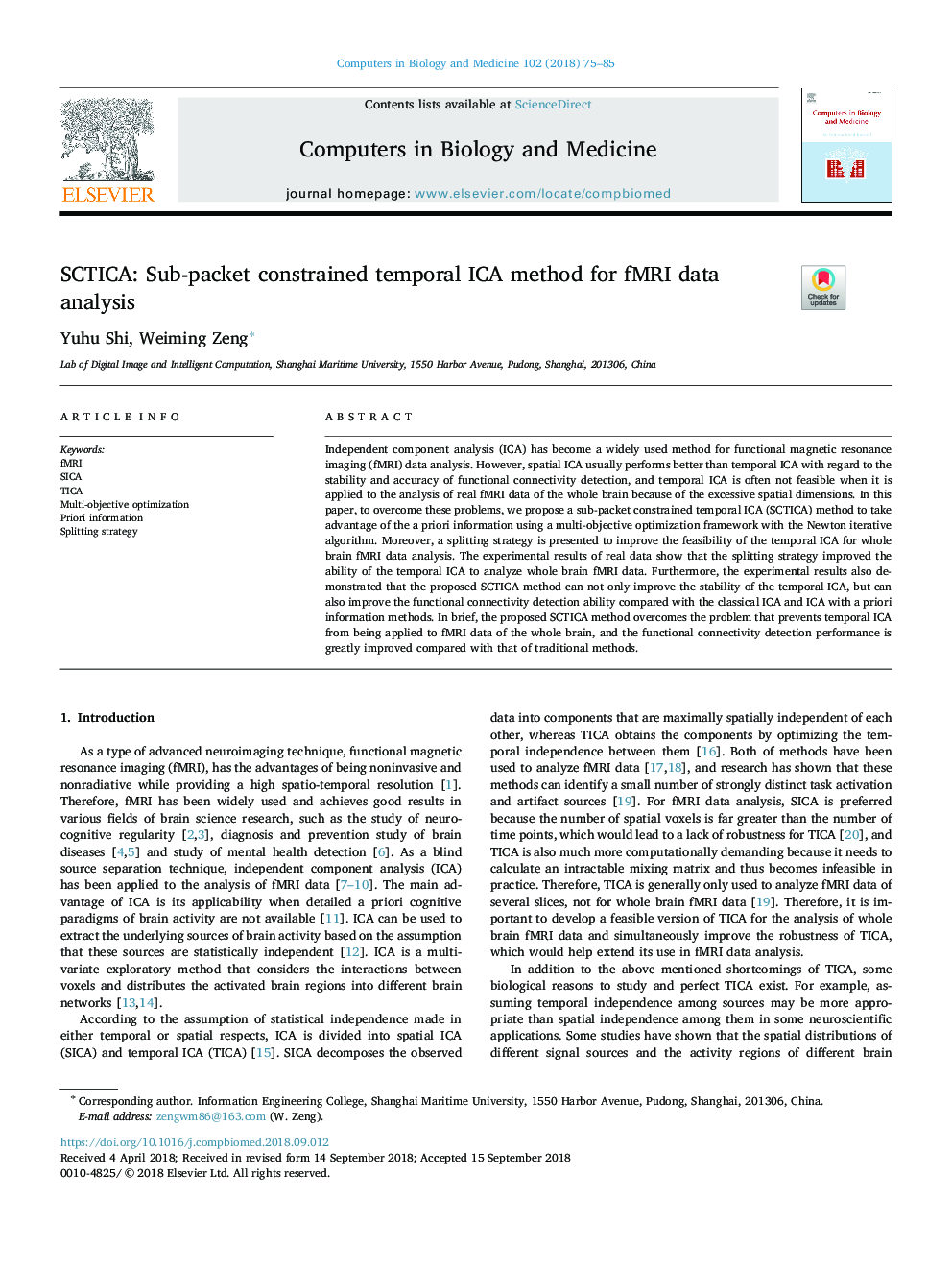| Article ID | Journal | Published Year | Pages | File Type |
|---|---|---|---|---|
| 11028053 | Computers in Biology and Medicine | 2018 | 11 Pages |
Abstract
Independent component analysis (ICA) has become a widely used method for functional magnetic resonance imaging (fMRI) data analysis. However, spatial ICA usually performs better than temporal ICA with regard to the stability and accuracy of functional connectivity detection, and temporal ICA is often not feasible when it is applied to the analysis of real fMRI data of the whole brain because of the excessive spatial dimensions. In this paper, to overcome these problems, we propose a sub-packet constrained temporal ICA (SCTICA) method to take advantage of the a priori information using a multi-objective optimization framework with the Newton iterative algorithm. Moreover, a splitting strategy is presented to improve the feasibility of the temporal ICA for whole brain fMRI data analysis. The experimental results of real data show that the splitting strategy improved the ability of the temporal ICA to analyze whole brain fMRI data. Furthermore, the experimental results also demonstrated that the proposed SCTICA method can not only improve the stability of the temporal ICA, but can also improve the functional connectivity detection ability compared with the classical ICA and ICA with a priori information methods. In brief, the proposed SCTICA method overcomes the problem that prevents temporal ICA from being applied to fMRI data of the whole brain, and the functional connectivity detection performance is greatly improved compared with that of traditional methods.
Related Topics
Physical Sciences and Engineering
Computer Science
Computer Science Applications
Authors
Yuhu Shi, Weiming Zeng,
